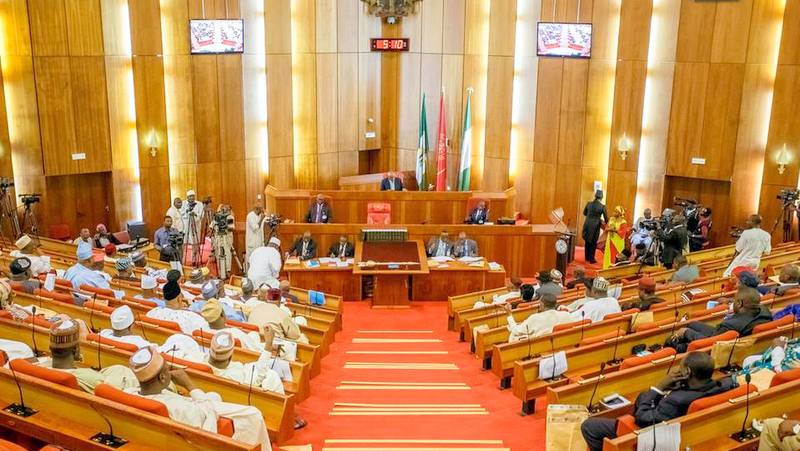
If the unseen hands of previous presidents could be spotted in previous amendments and therefore rejected, one wonders how far the Senate president and his co-travellers can go in arm-twisting Nigerians to accept amendments done for their protection, to the neglect of other bills that are critical to address current socio-economic challenges.
The National Assembly is not done yet in their revenge mission to perhaps ‘deal’ with the CCB chairman, Justice Danladi Umar and clip the wings of the president, with its renewed vigour and ammendment of the CCT Act. The implication of the Senate’s insensitivity to the sentiment of Nigerians can only lead them to a cul-de-sac. Were the lawmakers to conduct a survey on themselves in respect of the CCB Act, they will be shocked to discover how unpopular and low-rated they are in the estimation of the populace. For Nigerians, the Senate’s insistence on the latest amendment is a glaring case of vendetta against the CCB/CCT and, of course, an affront on the presidency, notwithstanding the fact that the lawmakers are constitutionally empowered to amend any Acts or even the constitution. They will have to win the hearts of Nigerians before they can win the war to reduce the powers of the CCT chairman and the president, going by the barrage of condemnations trailing their latest action.
The amendment, if and when assented to, will strip the president of the right to exercise authority over the bureau and transfer same power to the National Assembly. Instead of the “president”, most of the amended sections now read “the National Assembly”, while they also deleted section 1(4) of the Act, which used to read “the chairman and any member shall vacate office upon attaining the age of seventy”, and replaced it with “the chairman and members shall serve for a term of five years subject to renewal for one further term only.”
If the lawmakers’ amendments were mainly about tenure, many would have concurred. As it were, it was not appropriate or logical for CCT members to sit tight till they are seventy years of age, without taking into cognisance their age at the time of their appointment. It means, if one became chairman or member of the Tribunal at the age of 50, barring death and other unforeseen circumstances, the person would serve for 20 years. Certainly, this can create room for corruption and nepotism, among other societal ills. However, that was only a smokescreen to give the entire amendment a semblance of legitimacy.
The amendment/introduction of Section 20 (2) which borders on the Tribunal having to form a quorum before judgements on any issue or person can be passed is commendable. The new amendment prescribes a minimum of three out of the five Tribunal members to be present at any sitting. This is a good precedent, as verdicts will no longer be at the whims and caprices of one man whose prejudices are capable of swaying the course of justice.
If the history of constitution amendments since 1999 is anything to go by, the lawmakers are again set on a game they might not be able to win. All previous attempts to amend the constitution failed because they there were elements of personal interests ingrained in them.
Then the bizarre Section 3(d) which makes “compulsory for any case of breach or non compliance to be brought to the notice of the person concerned to enable him make a written admission of such breach or non-compliance and where such is done, there shall be no reference to the tribunal”. Again, with the new amendment, the appointment of Tribunal members is subject to the confirmation of the Senate as against the current system which mandates the NJC to recommend to the president. These two are capable of watering down the position and power of the Tribunal, while the Senate wields the big stick. If this applies in the ongoing trial of the Senate President, the case would have since been dead. It is wishful thinking for the Senate to want to carry out oversight functions on all MDAs, while their activities remain opaque.
The Senate President, Bukola Saraki is standing trial at the CCT over a 13-count charge of false asset declaration, and now the amendment. Haba! This is a wrong-headed approach and not even smart enough. A Senate that makes law for the self-serving interest of 109 ‘special ones’ as against 170 million citizens of the country is not worthy of their election. The amendment presupposes that the Senate President is guilty, and so in a hurry to intimidate the CCT and the presidency to submission. Legislators have a bad reputation; they are largely seen as treasury looters, who collect outrageous salaries and emoluments and do nothing. This latest problem will compound their negative perception among Nigerians.
If the history of constitution amendments since 1999 is anything to go by, the lawmakers are again set on a game they might not be able to win. All previous attempts to amend the constitution failed because they there were elements of personal interests ingrained in them. In 2003, all amendments to the constitution were thrown out because of one ‘ugly’ item—the third term ambition of then President Olusegun Obasanjo. The last one failed because of the overbearing influence of President Goodluck Jonathan in the final inputs.
If the unseen hands of previous presidents could be spotted in previous amendments and therefore rejected, one wonders how far the Senate president and his co-travellers can go in arm-twisting Nigerians to accept amendments done for their protection, to the neglect of other bills that are critical to address current socio-economic challenges.
zainabsule@yahoo.com, www.zainabokino.blogspot.com
PremiumTimes
END

Be the first to comment